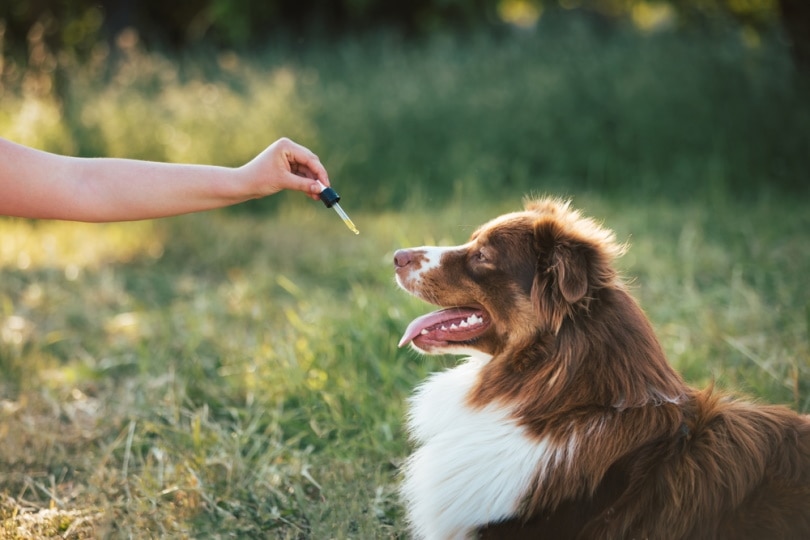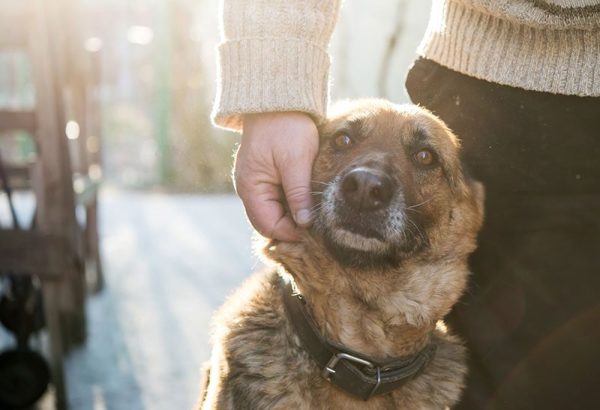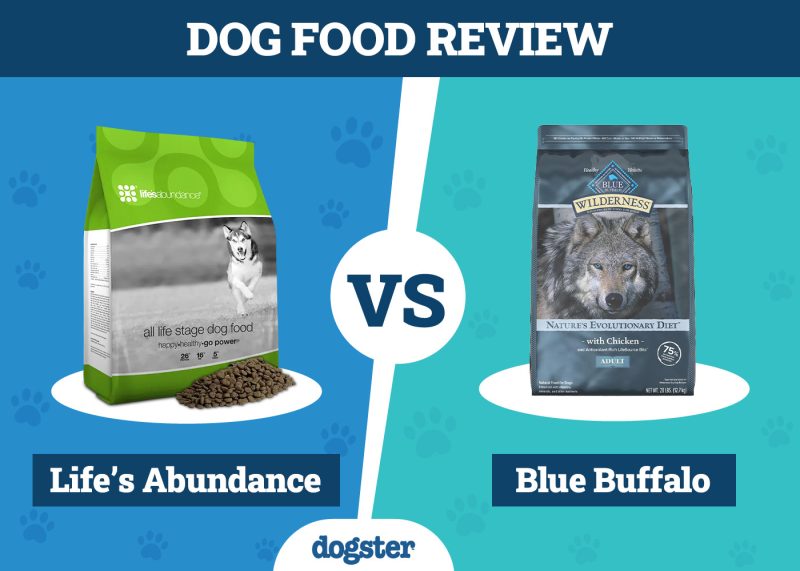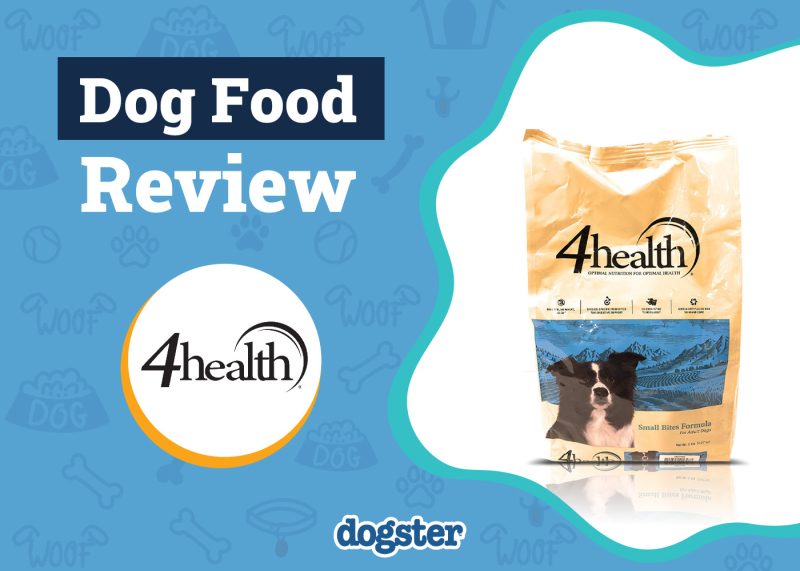We’ve all seen hilarious videos online of dogs running wildly back and forth throughout their home or doing laps around their yard at superhuman speed. It’s funny to watch, but it can be distressing to own a dog with a seemingly infinite source of energy.
Some dogs will naturally have more energy than others, but if your dog is excessively hyperactive all the time, you might wonder if using cannabidiol (CBD) can help tone down this behavior. CBD can help address some triggers that cause hyperactive behavior, but it isn’t a cure.
Keep reading to learn everything you need to know about CBD and your hyperactive pup.

What Is CBD, Anyway?
Cannabidiol (CBD) is a natural and non-toxic concentrate that comes from cannabis and hemp plants. When formulated for pets, it contains zero delta-9-tetrahydrocannabinol (THC), the compound that produces the high typically associated with marijuana.


Why Is My Dog Hyperactive?
A clinical diagnosis of hyperactivity in dogs is a relatively rare behavioral condition known as hyperkinesis. The behavior is usually only diagnosed in mature dogs (over 3 years of age) that haven’t settled down despite being socialized. It isn’t possible to properly diagnose it in puppies, as hyperactivity in puppies is considered normal in many cases.
Your pup may have poor impulse control, anxiety, a short attention span, or random energy busts. This condition can also be marked by aggression, agitation, poor trainability, excessive salivation, and tachycardia (fast heart rate).
In addition, there may be biological and environmental components to hyperkinesis. Let’s take a closer look at some of the causes of canine hyperactivity.
1. Breed
Dog breeds bred specifically to be highly active, such as those that would work or run all day, may be more susceptible to hyperactivity. Certain breeds simply need more activity in their daily lives and can become restless and “hyper” if they’re not given a way to burn off energy. This may not be a sign of clinical hyperkinesis, then, but just a character trait as these animals naturally thrive on physical stimulation.
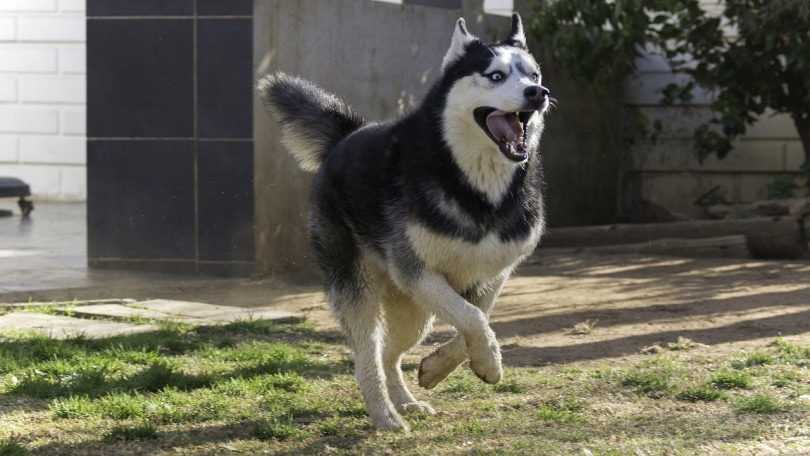
2. Early Socialization
As a puppy grows, they learn from their owners what’s expected of them. They will learn how to follow, lead, and play with just the right amount of force. If a puppy is not given the time to learn these things during their formative years, it could lead to misbehavior and hyperactivity in adulthood.
It’s essential to get your puppy around other dogs as soon as possible when they’re quite little. Keep meetups small and intimate to prevent overstimulation. Then, as they hit the 6-to-12-month mark, you can start expanding your outings to larger social settings such as dog parks to ensure they’re getting a chance to become properly socialized.
3. Anxiety
Anxiety can present itself in dogs in much the same way it does for humans. Sometimes dogs with anxiety will exhibit nervousness that can mimic many symptoms of hyperactivity. They may be more prone to barking outbursts and aggressive and destructive behaviors.
For some dogs, exercise, social contact, and consistent habits and routine can reduce anxiety levels.
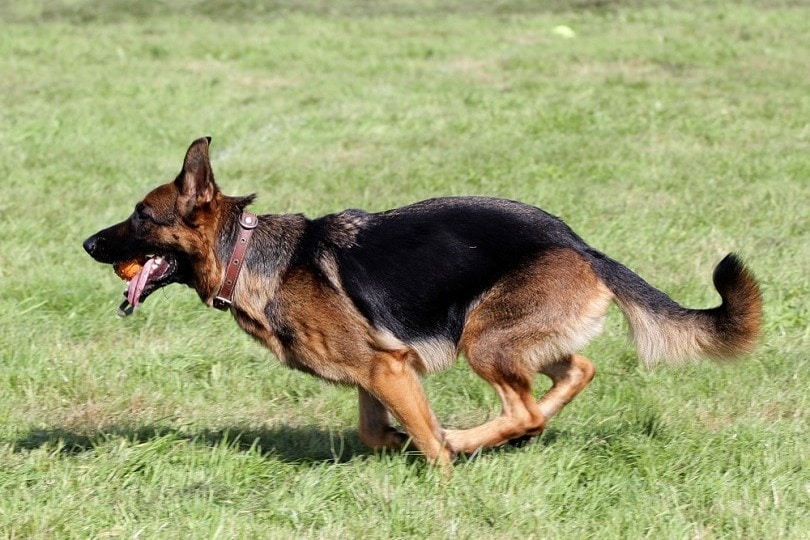
4. Exercise & Diet
Hyperactive dogs may just not be getting the exercise they need. When you give your hyper dog a way to run, walk, and play, they can channel all their pent-up anxiety and energy into healthy behavior.
Required exercise levels can tie back into your dog’s breed. Larger breeds, such as huskies or retrievers, are high energy and can become uncontrollable if not given a healthy outlet for their energy.
A poor diet with little nutritional value can cause behavioral issues. A vet is the best person to ask for advice regarding the optimal diet depending on your dog’s age, breed, and size.
If you need to speak with a vet but can't get to one, head over to PangoVet. It's an online service where you can talk to a vet online and get the personalized advice you need for your pet — all at an affordable price!


Will CBD Calm My Dog?
The FDA has not yet approved the use of CBD or any other hemp-containing products for animals to treat any ailment. If you plan to administer CBD to your pet, you should consult with a veterinarian before doing so.
CBD won’t treat hyperkinesis, but it can help prevent triggers that will cause hyperactive behaviors. When a CBD product interacts with the central and peripheral nervous systems, it can provide a host of therapeutic benefits.
There are currently no large-scale scientific studies that demonstrate the benefits of CBD for animals, but CBD has been proven effective in some small-scale studies (especially in dogs that suffer from osteoarthritis). There is plenty of anecdotal evidence from pet owners that it can treat pain, control seizures, and even help with anxiety. Some owners suggest that it can have a calming effect which can definitely help if your dog has excessive energy levels.
It is important to note that while CBD may help calm some dogs, it is not a sedative or a psychoactive and will not cause the same high as marijuana.
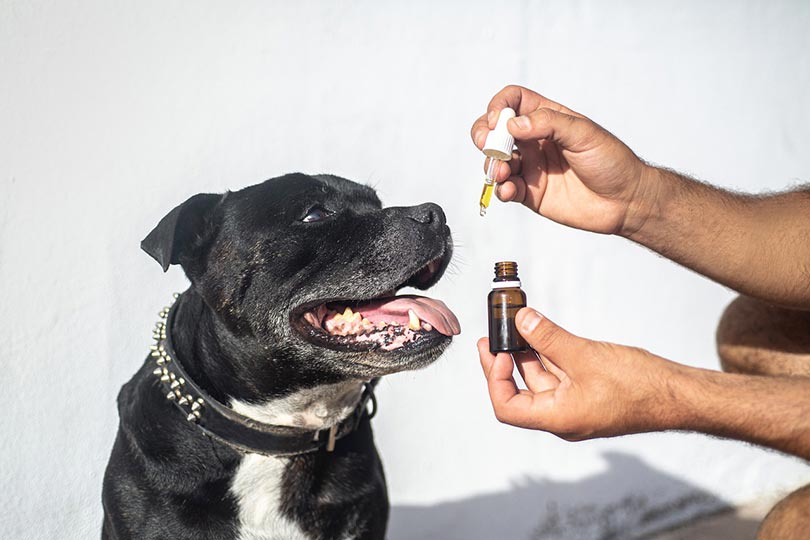
How Can I Pick the Right CBD for My Dog?
Do not give your dog a dose of your personal bottle of CBD oil. Even though CBD Is non-psychoactive, it’s still important to ensure you’re giving your pooch the right dose to prevent overmedicating. Human-grade CBD may also include traces of THC, which is toxic for pets.
First, you’ll want to choose a CBD product with no harmful additives like pesticides or herbicides. It should also contain no THC. It’s important to check for third-party testing results to ensure the product has gone through tests outside of the manufacturing facility. The manufacturer should also provide a certificate that tells consumers exactly how much CBD is in the product.
You can find CBD products for dogs in oil or treats. However, we recommend opting for the liquid version as it’s easier to adjust your pup’s dosage.
We also recommend reading reviews from real consumers before purchasing your CBD. Doing so can give you unbiased insight into what type of experience other users have had with the product. You’ll also better understand the company’s customer service and policies before you buy anything yourself.
Finally, you should consult with a veterinarian before deciding to give CBD to your dog. Even if legal restrictions prevent your vet from prescribing it for your dog, they can still give you valuable advice, assess your dog’s health (particularly their liver’s condition), and let you know if your dog truly has hyperkinesis. They may also be able to assess the degree of your dog’s hyperactivity. In some cases, medication might not be needed to assist your dog, and retraining might be sufficient.
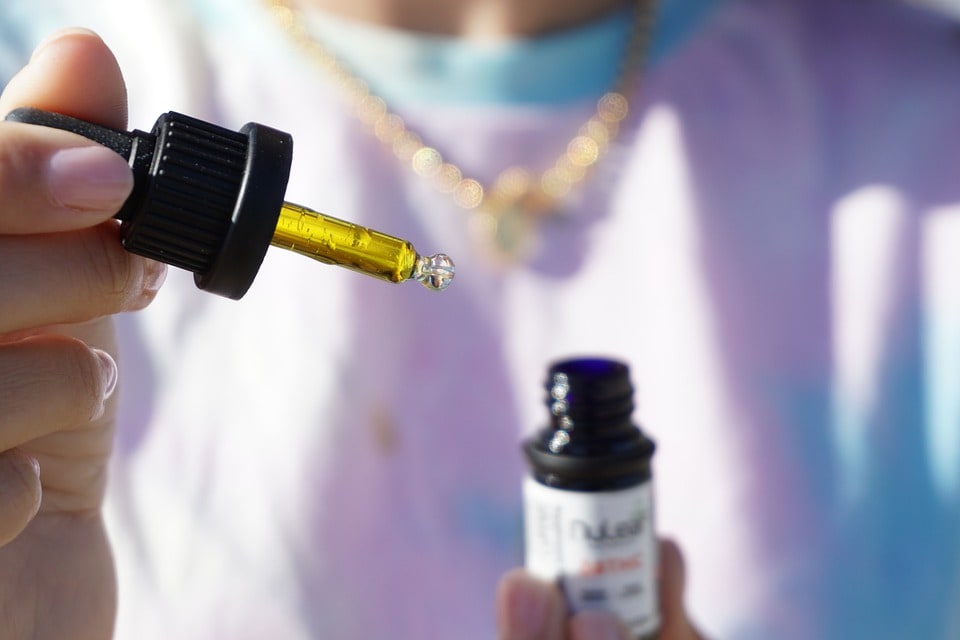
How Long Will CBD Take to Work?
Every dog will react differently to CBD, but you should expect most CBD products to begin working within 30 to 60 minutes (when administered for the purposes of short-term hyperactivity control and calming purposes).
The duration of CBD is measured in half-lives—the time it takes for the substance to halve in concentration. Depending on the type of product and the dose administered, the half life may be anywhere from 4 to 9 hours. However, studies on the half-life of CBD are still inconclusive. In addition, CBD may stop showing its desirable effects once enough of the drug has been eliminated by the body (this may happen before a half-life cycle completes in some cases).
Are There Any Risks Associated With CBD?
While CBD seems to be very safe for both cats and dogs, there are risks you should be aware of.
Some studies suggest that when CBD is given at the recommended dose, it can cause an elevation in alkaline phosphatase (a liver value on bloodwork). However, scientists are not sure if this elevation has any significance medically. It may be that CBD can irritate or damage the liver or it could be innocuous and just interfere with how labs measure liver values.
Some anecdotal reports suggest that dogs can become sleepy after receiving large doses of CBD.
If you have any concerns about CBD, its effectiveness, or if it will interact with any medication your dog is currently on, be sure to speak with a vet. They can provide guidance and dosage suggestions.


Wrapping Up
CBD is a potentially great tool that many pet owners are adding to their arsenal. While it will not cure your dog of hyperactivity, especially hyperkinesis, it can provide relief to the things that trigger your pup to be hyper.
We recommend reaching out to a vet if you’re unsure if CBD is the right route. A vet can provide useful insight and recommendations as well as provide testing to see if hyperkinesis is the root of your dog’s hyperactivity.
Featured Image Credit: 24K-Production, Shutterstock
